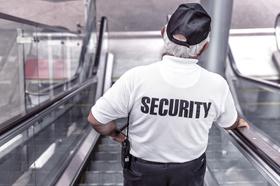Serving 282 students in grades Prekindergarten-6, Nordale Elementary School ranks in the bottom 50% of all schools in Alaska for overall test scores (math proficiency is bottom 50%, and reading proficiency is bottom 50%).
The percentage of students achieving proficiency in math was 15-19% (which was lower than the Alaska state average of 23%). The percentage of students achieving proficiency in reading/language arts was 25-29% (which was approximately equal to the Alaska state average of 29%).
The student-teacher ratio of 16:1 was higher than the Alaska state level of 15:1.
Minority enrollment was 59% of the student body (majority Hispanic and Black), which was higher than the Alaska state average of 53% (majority American Indian).
School Overview
Grades Offered
Grades Prekindergarten-6
(Supplemental Virtual)
(Supplemental Virtual)
Total Students
282 students
Gender %
Total Classroom Teachers
18 teachers
School Calendar
School Rankings
Math Test Scores (% Proficient)
(21-22)15-19%
23%
Reading/Language Arts Test Scores (% Proficient)
25-29%
29%
Science Test Scores (% Proficient)
30-39%
38%
Student-Teacher Ratio
16:1
15:1
American Indian
9%
22%
Asian
2%
5%
Hispanic
12%
8%
Black
10%
2%
White
41%
47%
Hawaiian
2%
3%
Two or more races
24%
13%
All Ethnic Groups
Participates in the National School Lunch Program (NSLP)
Yes
Eligible for Free Lunch
54%
37%
Eligible for Reduced Lunch
10%
3%
School Statewide Testing
School District Name
Source: National Center for Education Statistics (NCES), AK Dept. of Education
Profile last updated: 11/17/2024
Frequently Asked Questions
What percent of students have achieved state testing proficiency in math and reading?
15-19% of students have achieved math proficiency (compared to the 23% AK state average), while 25-29% of students have achieved reading proficiency (compared to the 29% AK state average).
How many students attend Nordale Elementary School?
282 students attend Nordale Elementary School.
What is the racial composition of the student body?
41% of Nordale Elementary School students are White, 24% of students are Two or more races, 12% of students are Hispanic, 10% of students are Black, 9% of students are American Indian, 2% of students are Asian, and 2% of students are Hawaiian.
What is the student-teacher ratio of Nordale Elementary School?
Nordale Elementary School has a student ration of 16:1, which is higher than the Alaska state average of 15:1.
What grades does Nordale Elementary School offer ?
Nordale Elementary School offers enrollment in grades Prekindergarten-6 (Supplemental Virtual).
What school district is Nordale Elementary School part of?
Nordale Elementary School is part of Fairbanks North Star Borough School District.
Recent Articles

How ║┌┴¤═°╣┘═° Schools Support Students on Free / Reduced-Lunch Programs
Explore how U.S. public schools support students eligible for free or reduced-price lunch through nutrition, academic, and wraparound services in 2025.

Hidden Costs of ║┌┴¤═°╣┘═° Schools: Fees, Supplies & Extras
Explore the hidden costs in public schoolsÔÇöfees, supplies, extracurricularsÔÇöand how parents can plan for them in 2025.

║┌┴¤═°╣┘═° School Funding 2025: What Families Should Know
Essential insights on public school funding in 2025ÔÇöhow it works, whatÔÇÖs changing, and what families should know to stay ahead.





